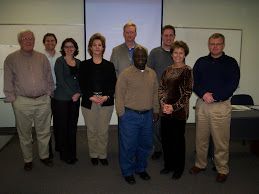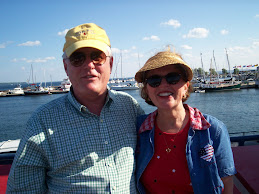Taleb, born and raised in Lebanon, earned his Ph.D. in Management Science at the University of Paris. His M.B.A. is from the Wharton School at the University of Pennsylvania. He was a successful financial trader on Wall Street. He is now a Professor of Risk Management at New York University's Polytechnic Institute and a Visiting Professor in Cognitive Sciences at the London Business School. His insights below about predicting events come from video interviews.
For centuries, Taleb reminds us, nobody believed black swans existed. All of the swans in Europe, the Americas, Africa, and Asia were white. When European explorers, however, reached Australia, this "for sure" collapsed. They - unexpectedly - found black swans!
For Taleb, the black swan is a metaphor for our "illusion of control" because of science and mathematics. In fact, science and mathematics measure narrow, select slivers of overall reality.
Our computer-generated, mathematical models of reality, which we use to make predictions, are highly flawed from the start. They are vulnerable to unpredictable "rare events" like the disaster of World War I (and II), the discovery of penicillin, and the arrival of the Internet.
Mathematics gives us the "illusion of numerical control" of the present and future. In fact, mathematical modeling actually masks the existence of risks. Mathematics cannot predict.
We ought not to replace the value of human life experience with mathematical formulae, statistical modeling and predictions, and "financial engineering." Yet, this is what we did in the 1970's. The result is the start of a worldwide depression which we see unfolding around us.
Moreover, the "over-optimized" centralization of economics, government, education, etc. along the lines of the factory model of the Industrial Revolution, makes us even more vulnerable to massive damage from unexpected "rare events," or "Black Swans." Because all elements in the system are tightly linked, damage in one part quickly becomes damage to the rest of the parts.
Add incompetence and corruption to these "over-optimized" systems, and you have a prescription for disaster sooner or later - often unexpected because of our illusion of control.
Nor does government regulation remove the probability of "Black Swans." It is another "over-optimized" system. To add to the damage, it fixes yesterday - "after the horse is out of the barn." Reality is a complex system, and our knowledge of it is incomplete - especially when we suffer from the "illusion of control" because of our blind belief in mathematics and science.
Taleb argues that past crises do not predict the future, for history has few "rare events." For him, the study of history and economics only creates more illusions. They create "retrospective distortions" of reality, and this can only lead to disaster if we attempt to use them to go forward.
Taleb also points out that when change, a "Black Swan" arrives, it is sudden, explosive, not incremental, linear. Mathematics has conditioned us to such incremental and linear thinking.
Where do the insights of Taleb leave us? Fortunately, he brings things down from "20,000 feet" for us with specific suggestions on how to survive and thrive in the "real world." Here are some:
- "Avoid guys with ties." To earn the tie, you must buy into the illusions of the system.
- "Don't mess with complex systems." Think Libertarian. Think Quantum Physics. Let reality organize itself. Or as Taoism teaches, let water find its own level. The rest is wasteful intervention and "spinning of wheels." Do not deny people reality checks.
- "Do not read newspapers." The mass media are shills, fronts, PR hacks for the system, which has no contact with reality in the first place. Mass media compound distortion.
- "Operate small." Think networking. Think local. Do not go down with the Titanic.
- "Fail with pride." Work. Learn. If you fail, work and learn again - smarter. In a world of illusions, it takes time to figure out reality, what is really going on, and how to use it.
- "Hard work and luck." Because reality is complex, there are no guarantees. Probability is a reality. Do not be hard on yourself if not every coin toss is heads.
- "Only invest where the costs to invest are small and the potential returns are large." For him, opportunities are best in technology yet, especially biotechnology.
- "Be nice to little people." They stand outside our systems of illusion; often they can provide reality checks - and survival contacts - when systems fail us.
1) be skeptical - especially about conventional wisdom and scientific predictions,
2) you cannot automate or model away human judgment based on life experience in making decisions about how to prepare for the future,
3) think, act, and live small - as far away as possible from dependence on "over-optimized" systems vulnerable to Black Swans,
4) promote networking, the decentralization of systems to avoid the spread of damage in one part of a system to all parts of the system.
Taleb in effect argues for "redundancy" in systems. He argues for decentralization to protect us from fatal collapse. This is the logic of the Internet which came into being to help the military to communicate in the event a nuclear attack - a Black Swan -wiped out central communication hubs. No sane person wants such Black Swans. But we have learned not to count on sanity.









No comments:
Post a Comment